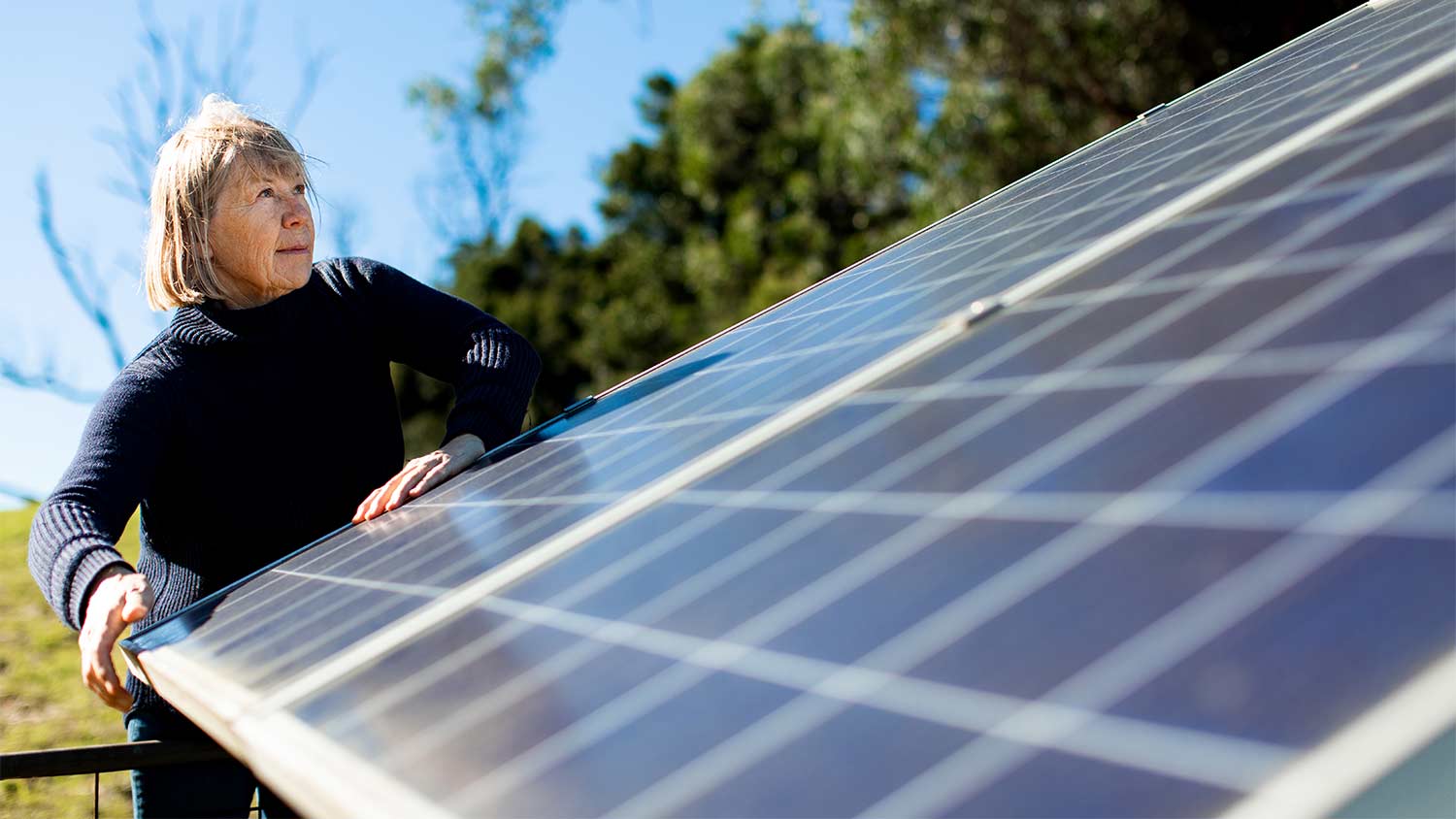Once a month, perform a visual inspection of your solar panels and the system components. Look for debris on the panels, such as dirt, tree branches, and leaves. Remove them if possible without endangering yourself by going onto the roof. Also, check for damage or inconsistencies in the indoor and outdoor system parts.
At least once per year, hire a solar panel inspector or your local solar installation company to perform a thorough annual professional inspection. A professional can check for unseen damages and ensure that your system is operating at its full potential. They’ll also check for loose fasteners and wiring issues to ensure your home’s safety.
4. Keep Solar Panels Clean
Depending on the weather conditions where you live, you’ll want to clean your solar panels or hire a professional to perform the task two to four times per year. Clean them after season changes, storms if necessary, or more often in dusty, windy locations. Deep cleaning roof-mounted solar panels is typically a job for professionals only.
Clean your solar panels using a leaf blower to remove large debris, such as leaves and branches. Check the manufacturer's instructions for cleaning directions which likely include wiping each panel with a mild dish soap and water mix, using a non-abrasive cloth or brush to release dirt, followed by rinsing with tepid garden hose water.
5. Avoid Harsh Cleansers and Abrasives
Although solar panels are up to the challenge of dealing with outdoor conditions, damage and scratches from abrasive cleaning compounds or stiff brushes can diminish their productivity. Using harsh cleansers may also void performance and durability warranties.
If you encounter dirt or stains on your solar panels that you aren’t able to remove with mild soap and non-abrasive cloth, ask your solar installer or manufacturer for the next steps or hire them to deal with the problem.














